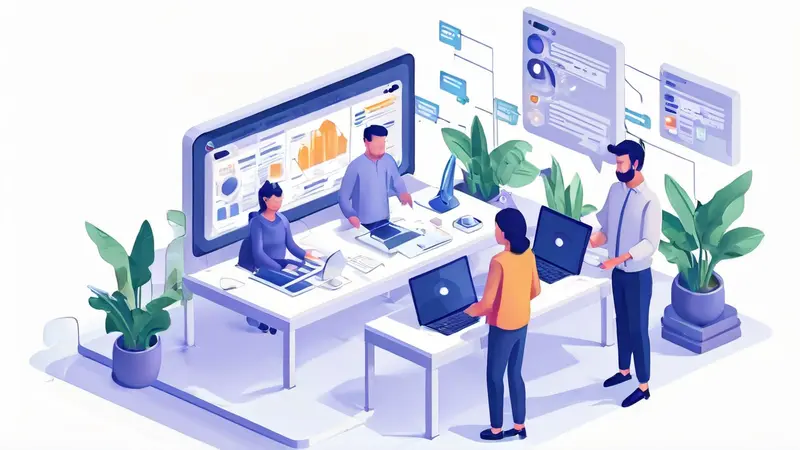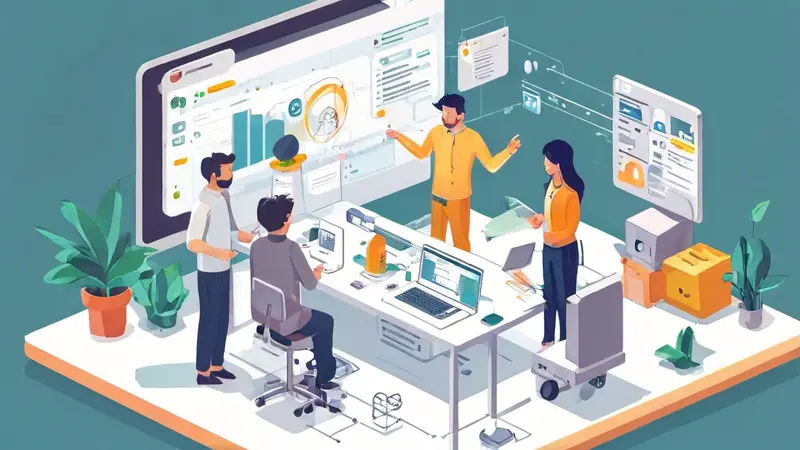
UNDERSTANDING THE FUTURE OF CODING
The future of programming is an ever-evolving field, characterized by the emergence of new technologies, languages, and paradigms. Despite the pervasive nature of change, several trends are particularly noteworthy: 1、the rise of artificial intelligence (AI) in code generation, 2、increased focus on security, 3、growing importance of cloud-native development, and 4、the proliferation of low-code and no-code platforms.
Among these, the advent of AI in automating coding tasks stands out. Not only can AI assist developers by suggesting code snippets and identifying bugs, but it is also beginning to generate code autonomously. This capability could potentially revolutionize how developers approach problem-solving, allowing them to focus on designing solutions rather than writing boilerplate code.
I. THE RISE OF ARTIFICIAL INTELLIGENCE IN CODING
AI's integration in programming tools is significantly reducing the manual effort involved in coding. Developers are beginning to use AI-powered tools that can write and optimize code, which heralds a transformation in developer roles towards more strategic and creative tasks.
II. ENHANCED FOCUS ON SECURITY
With cyber-threats on the rise, security is becoming a fundamental aspect of the coding process. Developers are now expected to incorporate security measures into their code from the outset rather than retrofitting them post-development.
III. CLOUD-NATIVE DEVELOPMENT GAINS TRACTION
The cloud-native approach to building and running applications exploits the flexibility, scalability, and resilience of cloud computing. Developers are increasingly coding applications specifically for cloud environments, leveraging microservices and containerization.
IV. LOW-CODE AND NO-CODE PLATFORMS EXPAND ACCESS
Low-code and no-code platforms are democratizing coding, enabling individuals without traditional programming skills to build applications. This trend is expanding the pool of innovators and changing the expectations placed upon developers.
V. SHIFT TO MORE COLLABORATIVE, CROSS-DISCIPLINARY TEAMS
In the future, coding is likely to involve a more team-oriented approach, with developers working closely with experts from other fields to craft solutions that are both technically sound and aligned with user needs.
VI. THE EVOLUTION OF PROGRAMMING LANGUAGES AND TOOLS
Languages and tools that facilitate faster, more efficient development cycles are gaining popularity. Functional programming concepts are increasingly being integrated into mainstream languages to enhance the development process.
VII. THE GROWTH OF EDGE COMPUTING
Edge computing, which involves processing data closer to the source, requires a different coding approach to central data processing. This shift is prompting developers to write code that can run on a wide variety of devices and in varied environments.
VIII. THE INCLUSION OF SUSTAINABILITY IN CODING PRACTICES
Sustainable coding, which focuses on writing energy-efficient software, is becoming more prominent. Developers are learning to optimize code to minimize its carbon footprint, which is crucial in the fight against climate change.
In summary, the future of programming is set to be profoundly impacted by the strategic implementation of new technologies and methodologies. Developers must adapt to these changes by equipping themselves with the necessary skills and knowledge to remain relevant in this dynamic field. The ability to write secure, sustainable, and cloud-native code will be highly valued, while AI and low-code/no-code platforms will redefine traditional coding roles.
相关问答FAQs:
1. 下一个编程语言将会是什么?
目前,编程语言的发展一直在加速,新的编程语言不断涌现。然而,要预测下一个主流编程语言并不容易。根据当前的发展趋势,一些可能的候选包括Rust、Kotlin和Swift。Rust是一种系统级语言,具有内存安全和并发性,适用于高性能应用程序。Kotlin是一种现代化的Java虚拟机语言,易于学习和使用,并且可以与Java代码无缝集成。Swift是由苹果开发的一种适用于iOS和macOS的编程语言,具有简洁、安全和高性能的特点。无论是哪种编程语言成为下一个主流,它都很可能是为了满足人们对效率、易用性和安全性的需求。
2. 下一个编程语言将会有哪些新的特性?
随着计算机技术的不断发展,下一个编程语言可能会具有一些新的特性。例如,一种趋势是更强大的类型系统,可以在编译时捕获更多的错误。另一个趋势是更好地支持并发编程,以利用多核处理器的性能。此外,语言的语法和语义可能会变得更加简洁和易于理解,以提高代码的可读性和可维护性。还可能会出现更多的领域专用语言,以满足不同领域的特殊需求。综上所述,下一个编程语言可能会具有更强大的类型系统、更好的并发支持、简洁易懂的语法和更多的领域专用语言。
3. 学习下一个编程语言对我有什么好处?
学习下一个编程语言对于程序员来说具有很多好处。首先,学习新的编程语言可以扩展你的技能树,并增加你在工作市场上的竞争力。掌握更多的编程语言意味着你可以更好地适应不同的项目需求,并且可以在更多的工作岗位上发挥作用。其次,学习新的编程语言可以帮助你理解编程的原理和概念。每种编程语言都有其独特的设计理念和使用方式,通过学习不同的编程语言,你可以更好地理解编程的本质,提高自己的编程能力。此外,学习新的编程语言还可以激发你的创造力和解决问题的能力。每种编程语言都有其自己的优势和限制,通过学习多种编程语言,你可以更好地掌握解决问题的方法和技巧,提高自己的编程水平。所以,学习下一个编程语言不仅仅是为了跟上时代的发展,更是为了提升自己的技能和能力。
文章标题:下一个编程是什么样的,发布者:worktile,转载请注明出处:https://worktile.com/kb/p/1724017

 微信扫一扫
微信扫一扫  支付宝扫一扫
支付宝扫一扫 




